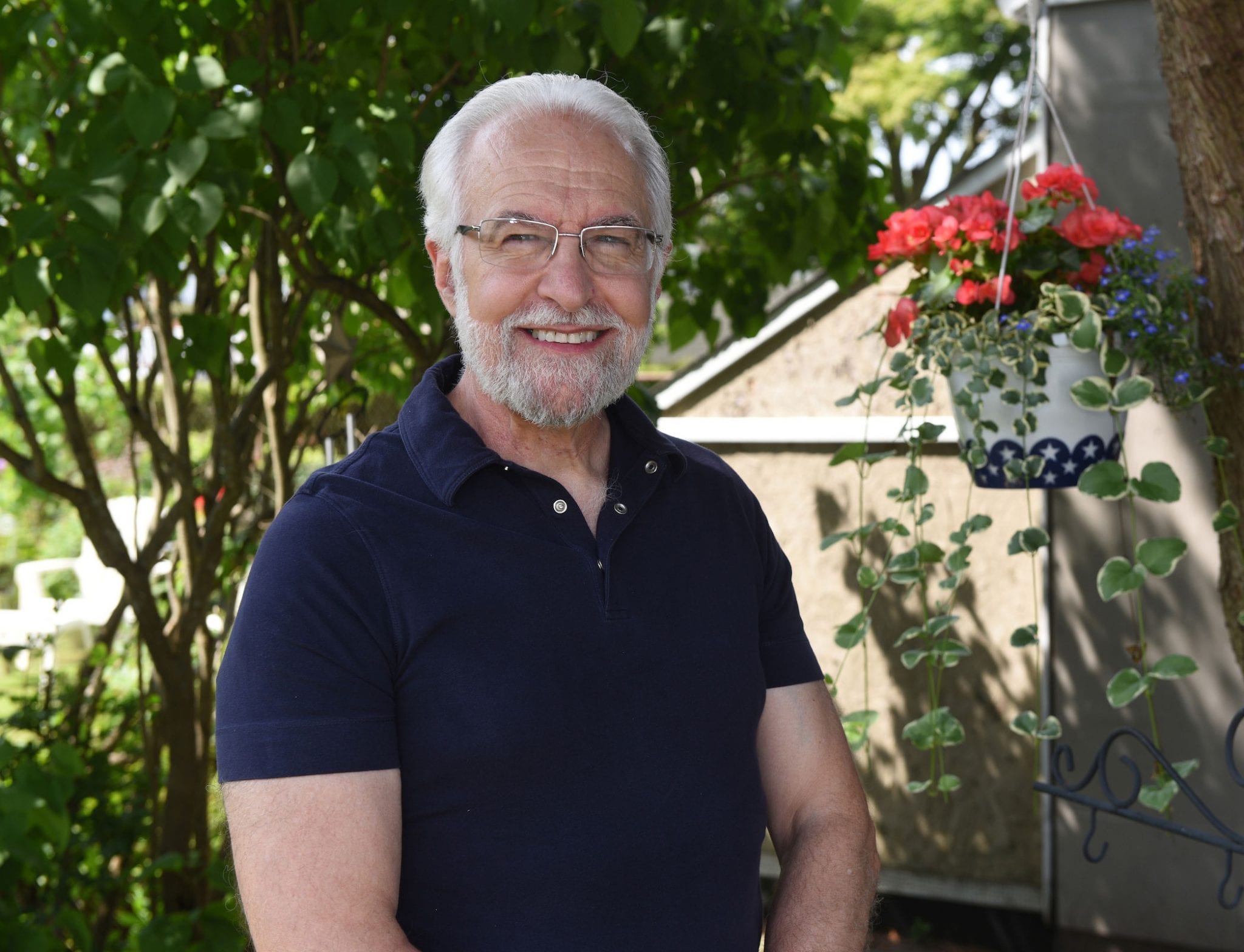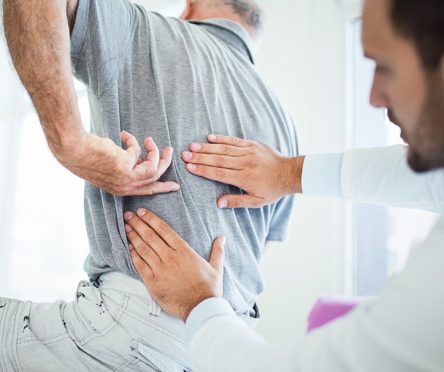Joseph Merenda’s entire life was planned around the bathroom — when he could go, where the bathroom was located, if he could extract himself from social and work-related situations easily enough to go, how long he’d be trapped in there trying to finish.
“I’m a Messianic rabbi and I would be performing a funeral or a wedding, looking for a break so I could run off and go to the bathroom,” Merenda says. “I’d go during testimonials in a funeral or while music was playing. It was embarrassing.”
Merenda had been seeing Dr. Anthony Quinn, a Waterford urologist, for several years for an elevated PSA level, which is often a sign of an enlarged prostate but can also signal prostate cancer.
“I did not have prostate cancer but I needed checkups,” he says. “Then, the problems started so slowly that you’d barely perceive it. I started going to the bathroom once a night, then twice, then three times. But, when the doctor would say, ‘How are you doing?’ I’d say, ‘Fine, I’m doing fine.'”
He then had several episodes of prostate infections, or prostatitis, which resulted in a total inability to urinate and required the insertion of a catheter for a week at a time. This proved terribly inconvenient and uncomfortable. After the prostatitis resolved, there were still prolonged visits to the toilet where he’d wait to go for longer and longer periods of time.
“The last time it was bad.,” he says. “I’d have to urinate but I’d stand there and couldn’t go. Life had become ‘When do I go?’ and ‘Will I be able to go?’ It was horrible. Medications helped but didn’t fix the problem.”
Dr. Quinn, affiliated with Hartford HealthCare’s Tallwood Urology & Kidney Institute in Eastern Connecticut, suggested a minimally invasive procedure called a bipolar transurethral prostatectomy (TURP) in which he’d go in through the urethra with a scope and remove the inner part of the prostate.
Merenda had the outpatient surgery earlier this year and calls the results life-altering.
“He turned the clock back 30 years,” he exclaims just days before his 65th birthday. “I don’t think about it. I go when I want to go. The stream is very strong. I thank God every day that He brought me to Dr. Quinn!”
Dr. Quinn notes that the bipolar TURP has converted what used to be a three-day hospitalization to an outpatient procedure and remains the gold-standard for relief of prostate obstruction. For patients with smaller prostates, however, even less invasive alternatives are available. In addition, while medications are generally tried first to relieve enlarged prostate symptoms, they do not stop the prostate from growing.
“For patients with progressive symptoms, or those who would rather not be on medications long term, minimally-invasive surgery is often life-changing, as it was in Rabbi Merenda’s case,” he says. “There is no reason to have your life dominated by urinary symptoms. It is very rewarding to be able to offer these procedures which usually result in great improvement in quality of life for men suffering from enlarged prostate symptoms.”
For more information about TURP at Hartford HealthCare’s Tallwood Urology & Kidney Institute, click here.


